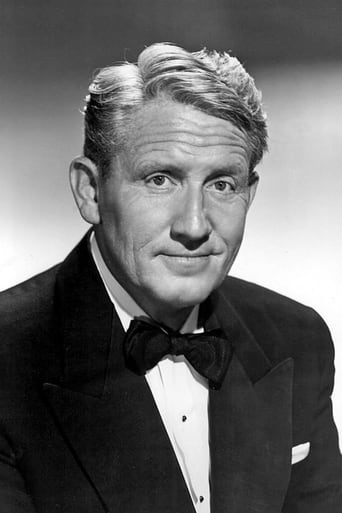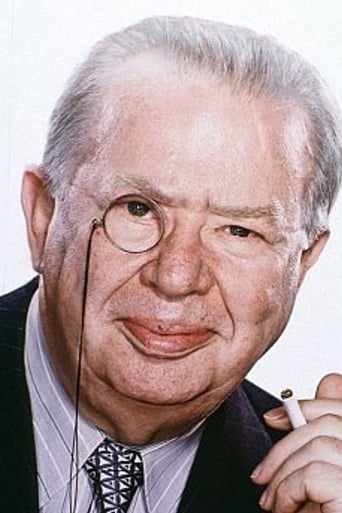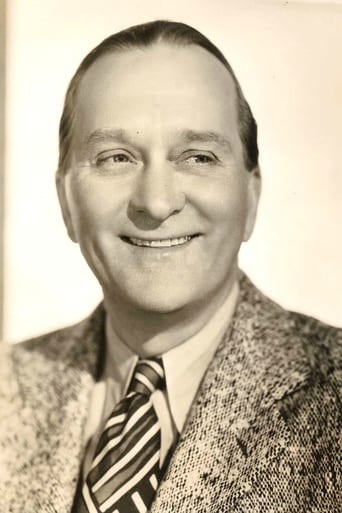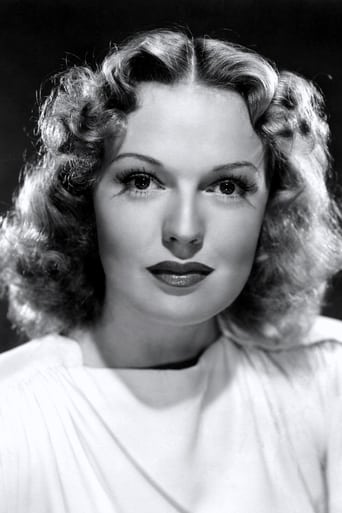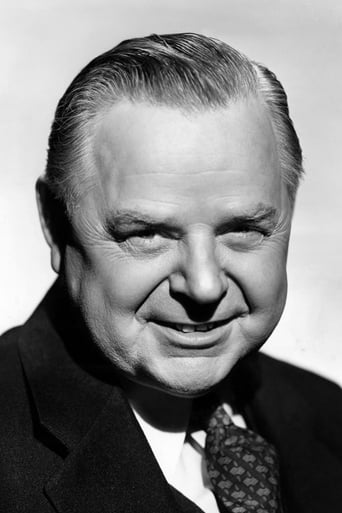BeSummers
Funny, strange, confrontational and subversive, this is one of the most interesting experiences you'll have at the cinema this year.
romanorum1
The caption quote is what visitors to the Edison National Historic Site in New Jersey are told. For there is no question that Thomas Alva Edison, "The Wizard of Menlo Park," was America's greatest inventor. His accomplishment of 1150 patents is truly astonishing when one takes into account the times when he lived. Most of his life was spent in the 19th century.Movie makers have always had an attraction for biographies. To name just a few of the many featured in motion pictures: Alexander the Great, Marco Polo, Columbus, Marie Antoinette, Kit Carson, Abraham Lincoln, Brigham Young, Louis Pasteur, Geronimo, Knute Rockne, Hank Williams, John F. Kennedy. Of course it is difficult to cram a person's life into a two or even three-hour movie. Then again, the movies, for various reasons, are not too accurate with the facts. With "Edison the Man" we at least have an enjoyable representation that focuses much on Edison's earlier inventions. We still miss much, like the early death of Mrs. Edison (Mary Stilwell) at age 29, and Edison's second marriage two years later to Mina Miller. The real Edison had three children with the first marriage, and three with the second. But as the movie ends in 1882, the first Mrs. Edison was still alive. Then again, the real purpose of the movie is to make drama with the earlier inventions.The biography begins in 1929 when Thomas A. Edison was honored at a banquet for the Jubilee of light (1879-1929). He reflects on his long life – already exceeding 80 years – by thinking back to 1869, when relatively unknown at age 22 he had improved the stock market ticker. From his success he received $40,000 from General Powell (the actual amount was $10,000). With the payment Edison constructed his famous laboratories at Menlo Park, NJ. After much sweat he and his loyal associates invented the Quadruplex telegraph, the phonograph (1877), the electric light bulb (1879), and many others. It was the phonograph, the talking machine, which really brought the inventor into the public eye. The singular great accomplishment was the electric light bulb, along with the dynamo and electrification of Pearl St. in Manhattan on 4 September 1882. These achievements came after he found that one of his pseudo-supporters (Taggart) had a vested interest in the gaslight business. But Edison was determined to get the job done in the allotted six months. From time immemorial man had needed to use burning flames to produce light. Electric power remains safer (and more comfortable in the summer).To keep the movie within a reasonable time length (Edison's life from 1869 to 1882), some of the major inventions of the later 19th and early 20th centuries are quickly listed at movie's end. They include the fluoroscope (X-ray machine), ediphone (dictating machine), cement kiln, mimeograph, and motion pictures (kinetoscope, 1891). The last listing, "talking pictures," is dubious at best as Edison was long deaf and preferred silent movies to talkies. Also, Spencer Tracy makes the great man to be more pleasant than he really was. For the real Edison was motivated by commercial success as much as his desire to improve man's lot.Spencer Tracy was such a marvelous actor that he would study about those he portrayed, especially Thomas A. Edison. He even visited his famous New Jersey Laboratories. The actor had already won the Academy Award in 1938 for his portrayal of Father Flanagan of Boys Town. Perhaps his best representation of Edison is demonstrating the man's personal drive to succeed in all of his endeavors, to push harder and harder, to combine inspiration (1%) with perspiration (99%). Look at his despair when he cannot keep up with the bills, then later his weary joy when Pearl Street lights up. Worth seeing.
bkoganbing
If anyone is looking for a factual account of the life of Thomas Alva Edison this ain't the film for you. In fact Edison the Man is the second film that MGM did on him. Young Tom Edison had come out before this one and Mickey Rooney played a boy's life version of him. At the conclusion of that film there was a preview that Edison the Man would be coming out soon starring Spencer Tracy.The widow Edison who was still alive at the time gave her personal stamp of approval on casting Spencer Tracy as her husband. Who wouldn't want his life's story portrayed by Tracy. But among the many things not shown was the fact that she was the second Mrs. Edison. The first Mrs. Edison, played by Rita Johnson in the film died in the 1880s and Edison married again the Gay Nineties. He had three children with each wife. So you can see a lot of the personal life has been left out.The film is told in flashback as an aged Edison is sitting at a banquet table listening to the toastmaster tell of his life. We only see about 10 years of it from the time he arrives in New York to when he proves the validity of the electric light by powering a section of New York.One of the great quotes from Edison is that genius is 1% inspiration and 99% perspiration. Inventing the electric light was the result of trial and error running into the thousands of methods and that is the part of Edison graphically shown. Edison is always held up as the great example of the American success story. He was a man with little formal education at all who had ideas and the natural ability and will to see them through. It should always be remembered that Edison gained his fame during the Horatio Alger era. He was the living embodiment of those stories about the poor kid who succeeds through hard work. The part of Edison that's not so nice, his battles over patents with other inventors, his ruthlessness in business exploiting those patents, that all comes later. It would take a mini-series to really do his life justice.But I think Edison himself would have loved to see the way MGM handled his life in both films. He certainly would have seen himself as Spencer Tracy plays him, the wise benevolent man, with an iron perseverance.Just don't anyone doing serious research on Edison use this film as a guide to his life.
roofusdc
Edison in this version comes across as a kindly soul, sort of "Santa the inventor" -- kind to one and all.Don't look for historical accuracy of any kind in this film. Although the acting is nicely done. Spencer Tracy is a constant delight. He even gets to play the organ in one scene! Tracy and Co.'s contributions rate it a six, but it certainly doesn't deserve anything more.I especially loved the one-handed Morse-code tapping Edison. One doesn't need to know much about Edison to realize pretty quickly that this is sheer hagiography.There is even a court room scene between gas and electrical lighting. Pretty fun.
shell-26
I like the fact that Edison was nominated for the Oscar for best Original Story. How many biopics can claim that honour ?Spencer Tracy is excellent as the dynamic American inventor. Although he was a 40 year old playing a 25 year old he produced sufficient energy to overcome the obstacle of years. This is a fine piece of acting and is well supported by the bit-parts and by the director who clearly enjoys telling the story of Edison's finest achievements, the invention of the light bulb and of the recording device.The main problem with the film is its lack of balance. We don't hear enough about his theft of patents and his failure to give credit to his co-workers. Edison is a metaphor for America in the early twentieth century, exciting, inventive, thrusting, dynamic but also shallow and lacking in grace.

